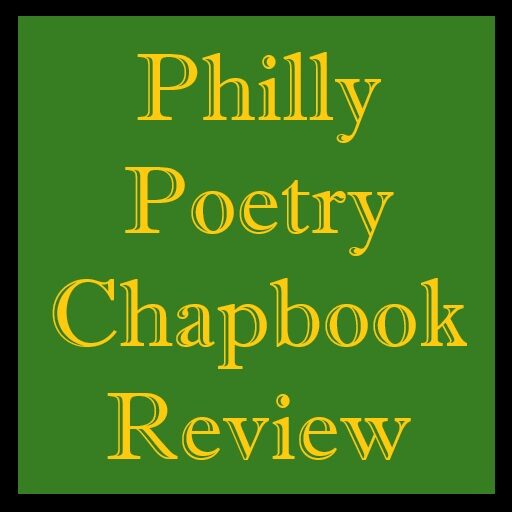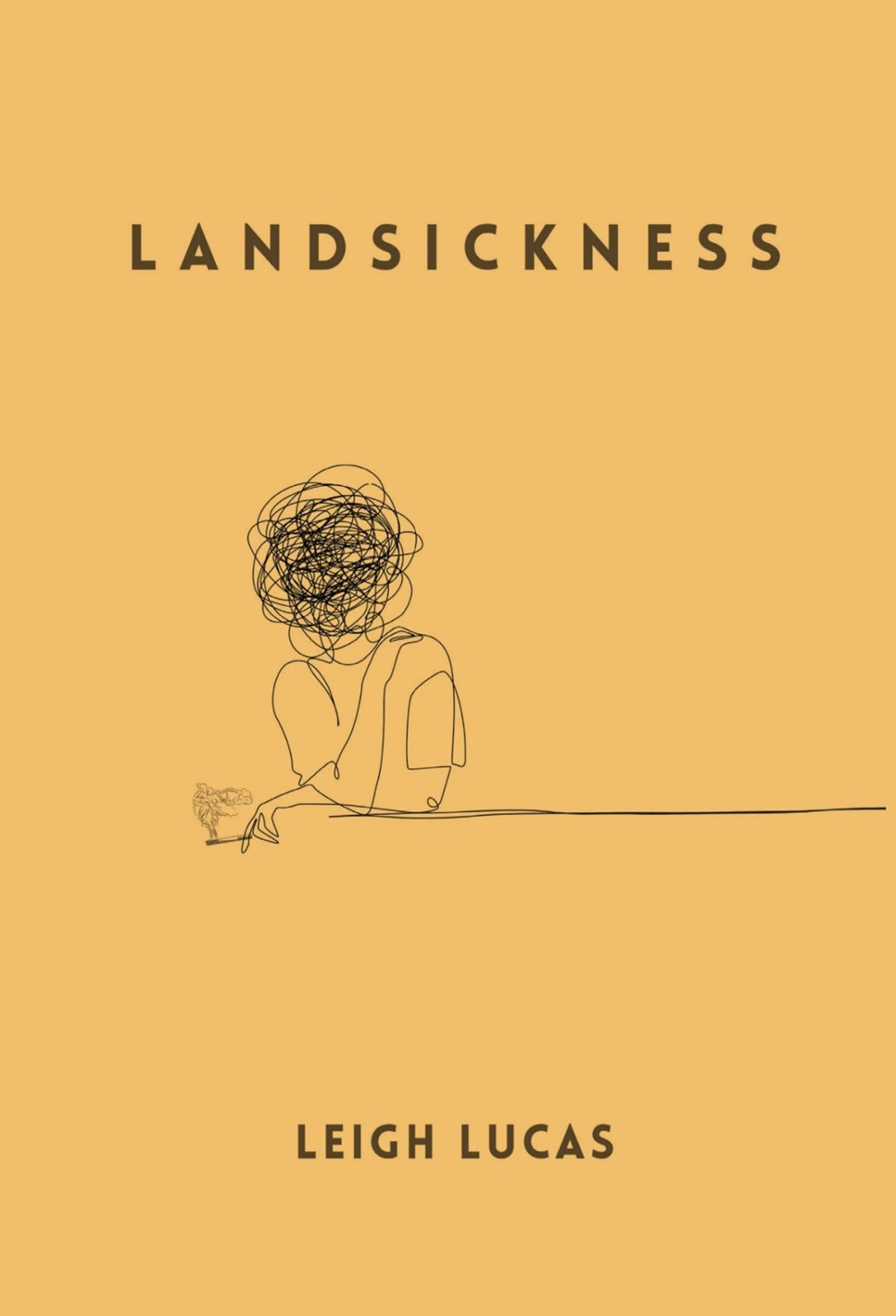Due to difficulties in obtaining information in advance of chapbook releases, chapbook listings will be published at the end of each month, beginning with Issue 3 (May/June 2024). This post contains information about poetry chapbooks that we know about published during June, 2024.
Information, including product descriptions, is provided by the publisher and not a critical judgment. If we cover the book on this site, links will be included.
Page: 1 | 2
Tupelo Press
Landsickness, Leigh Lucas
Editor’s Pick
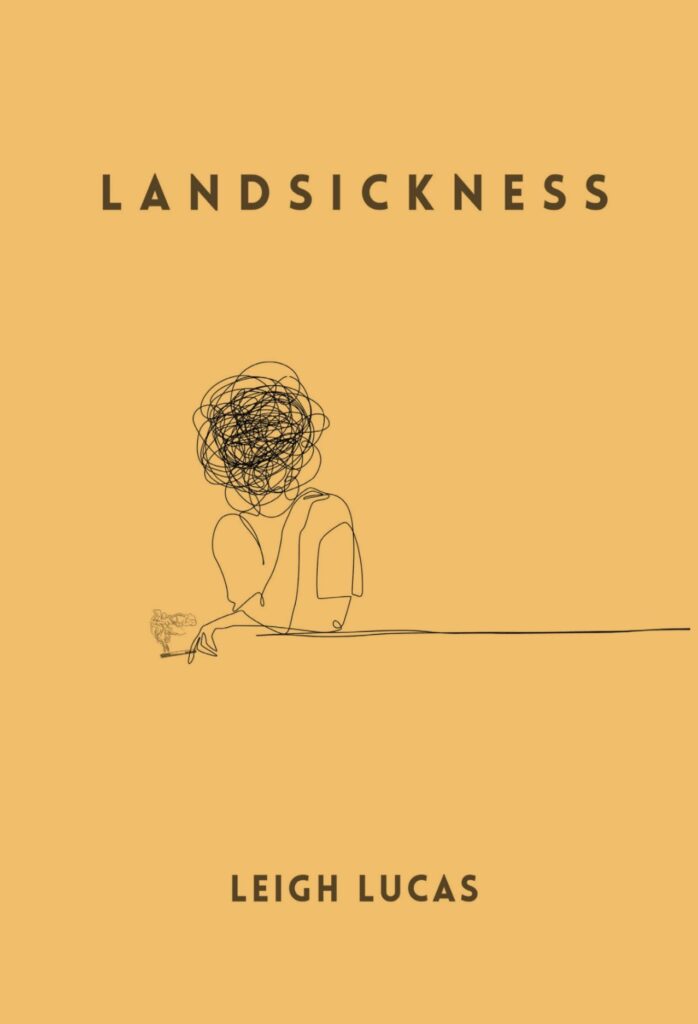
Landsickness explores the inelegant progress of grief and pursues a relentless search for evidence of the beloved’s presence through the physics of splashes, the history of seasickness, and the science of depression. While full of tenderness, the poems employ humor and honesty to observe the ugliness of grief and the failure of elegy to restore the dead.
From the funeral to the office of her dead-end job to navigating the streets of New York, the speaker experiences a series of false starts as she learns to cope with her new life. Still, there is a real sense of progression in the collection’s end, even as the speaker continues to ask herself: “Why am I obsessed with the physics of his fall?”
Driftwood Press
Fruitful, Stefanie Kirby
Chapbook Poem: Like a Honeypot
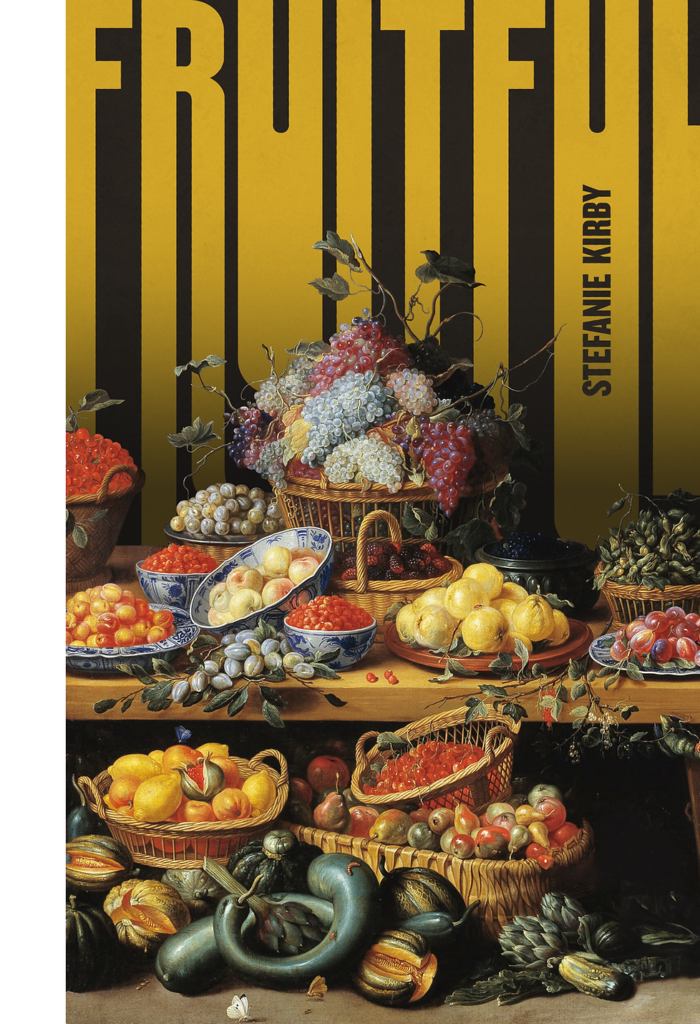
Stefanie Kirby’s moving chapbook Fruitful explores the tragedy of pregnancy loss and motherhood in surreal, artful, compact poems that both chronicle and expand our understanding of the wombed body.
Sheila-Na-Gig Editions
What the Angel Saw, What the Saint Refused, George Franklin
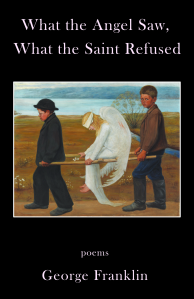
In What the Angel Saw, What the Saint Refused, the angel doesn’t know the purpose of his presence among humans, but grief draws him to itself repeatedly. He is helpless to improve matters, even though he sees what is happening with perfect clarity. The saint, more precisely an anti-saint, also refuses any subterfuge, excuse, or consolation that would diminish the harshness and injustice he witnesses. If the saint had been Job, he would have spit into the whirlwind or, better yet, laughed. He wants to shake people out of their certainties and especially rejects the transcendence of the philosophers. Unlike the angel, the saint sees a bitter humor in the tragedies that surround him, and that humor gives him an equanimity that surfaces in his conversations and encounters. Both angel and saint are creatures of negation and irony. They are fundamental, modern, even mirror images of ourselves. If the angel of sorrow and the saint of unbelievers did not exist, just maybe, it might have been necessary to invent them.
Diode Editions
BOOTless →, Trace DePass
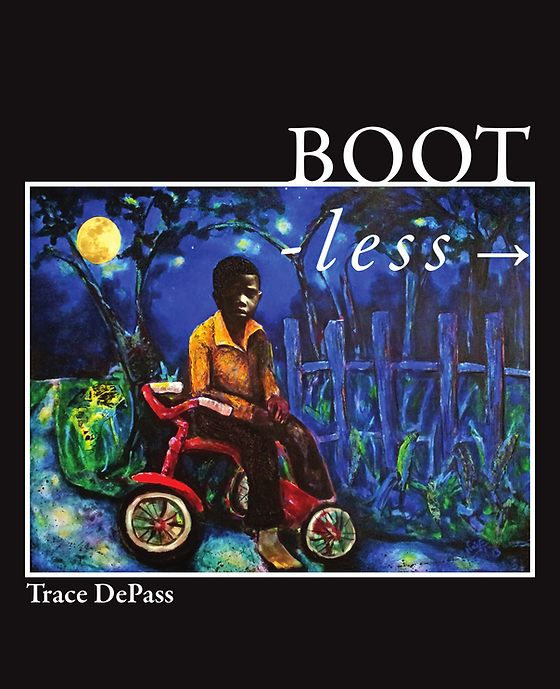
BOOTless → an archaic word also meaning ineffectual, is a black poet’s psychedelic meditation on gentrification, climate change, & post-pandemic grief, pointing its arrow back at its country that has stacked colonization on genocide & monopolized colonization & genocide. The book laughs at an oppressor’s self-elected right to canonize its theft & winning rhetoric under the guise of calling it history. This book may indict Whiteness, if not English itself, as using language built on oppression (a Deleuzian desire-machine sewn together by other languages) in order to create indefinite law on stolen land with indefinite marginalization for the people on it since the US nation’s legal creation.
Querencia Press
GUNK, Noah David Roberts
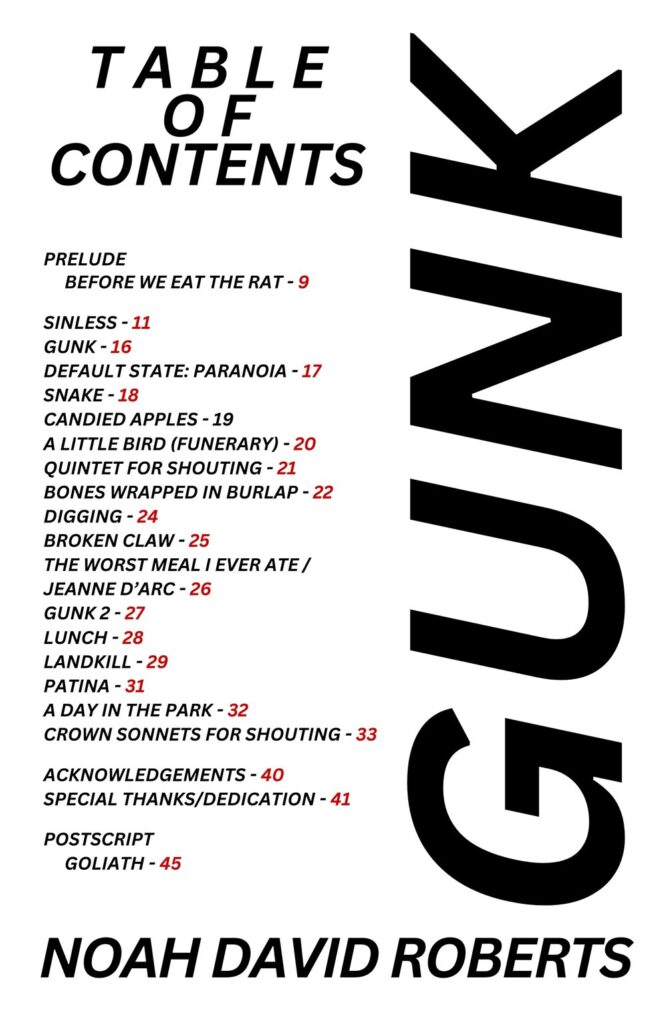
“This book will vibrate in your skull. It is desperate and honest, introspective and self-aware and soaked in a viscous, oozing terror. On the page and in person, NDR never needs a microphone; their words and intentions are loud and clear. The gunk of this book is a pit of black, boiling tar; it’s the hole into which it’s poured. It’s a curse, and it works.” —Lindsay Hargrave, author of ROT & Computer Baby
The Poetry Box
Pleased to Meet You, Romana Tarlamis
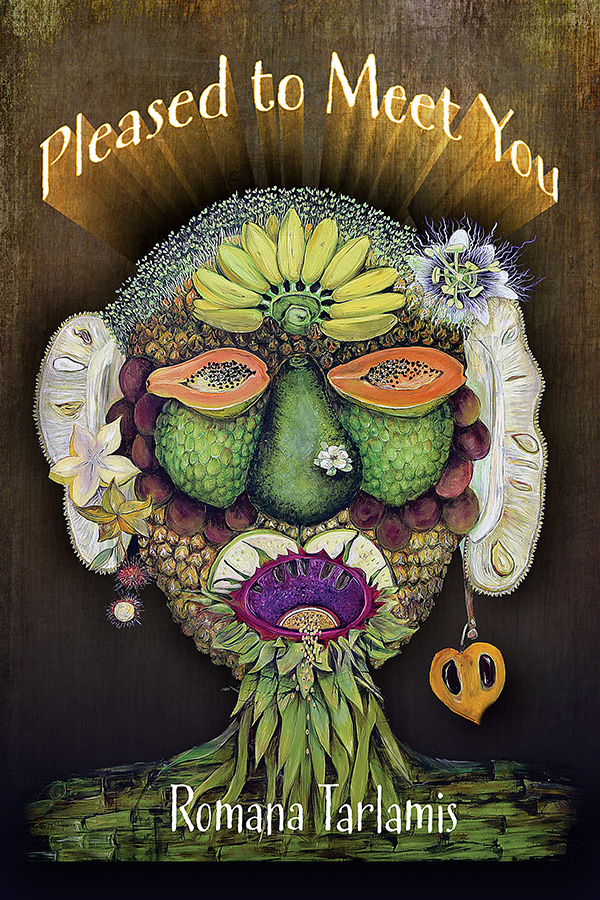
Pleased to Meet You is a soliloquy portraying the author’s life journey over three continents—through childhood, middle-hood, in the now and into the possible—written in search of meaning and connection.
Bull City Press
Sapello Son, Alejandro Lucero
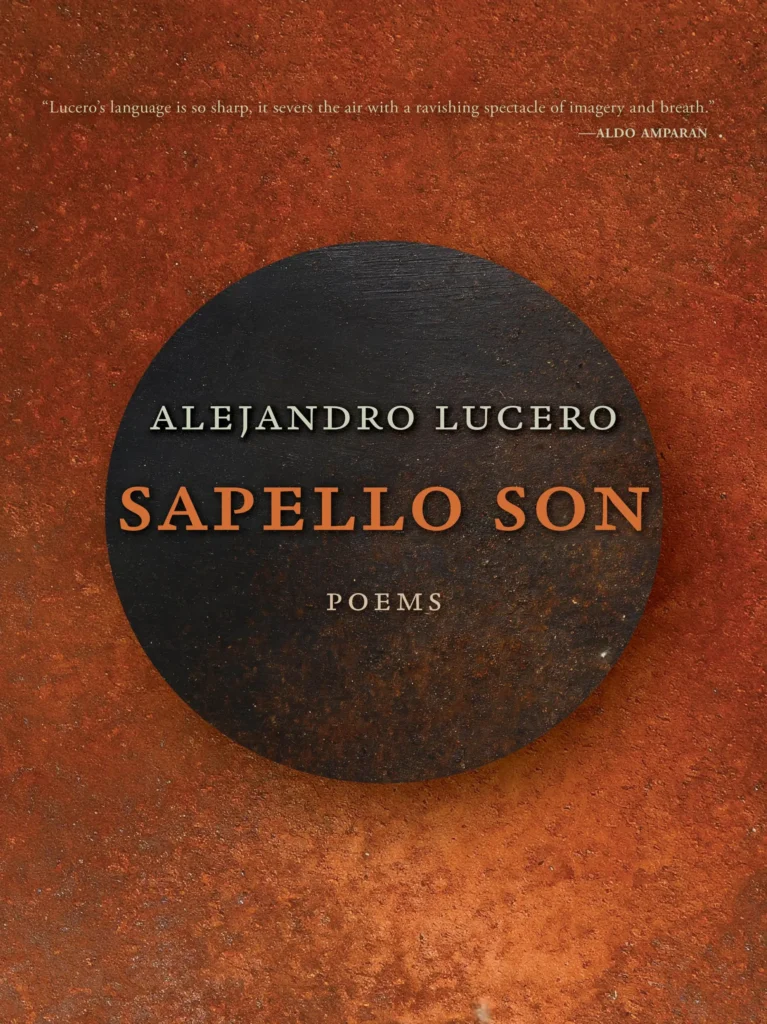
Fields of alfalfa turned into tufts of fire hazard from drought. The walls of a cold mobile home. A cut straw, stained ballcap, dirty carpets. These are the images that haunt Sapello Son, Alejandro Lucero’s lyric rekindling of a childhood in New Mexico and the landscape that consumed his parents. Lucero’s familiarity with the razor’s edge of choices foisted on those at the fringes keeps us teetering between profound devotion to family and sober recognition of the ways some families fail. Like its namesake, Sapello Son avoids sentimentality and refuses sympathy, asking us to reckon with the only things we’re born with: a place, a family, and a name.
Gratitude List, Jarrett Moseley
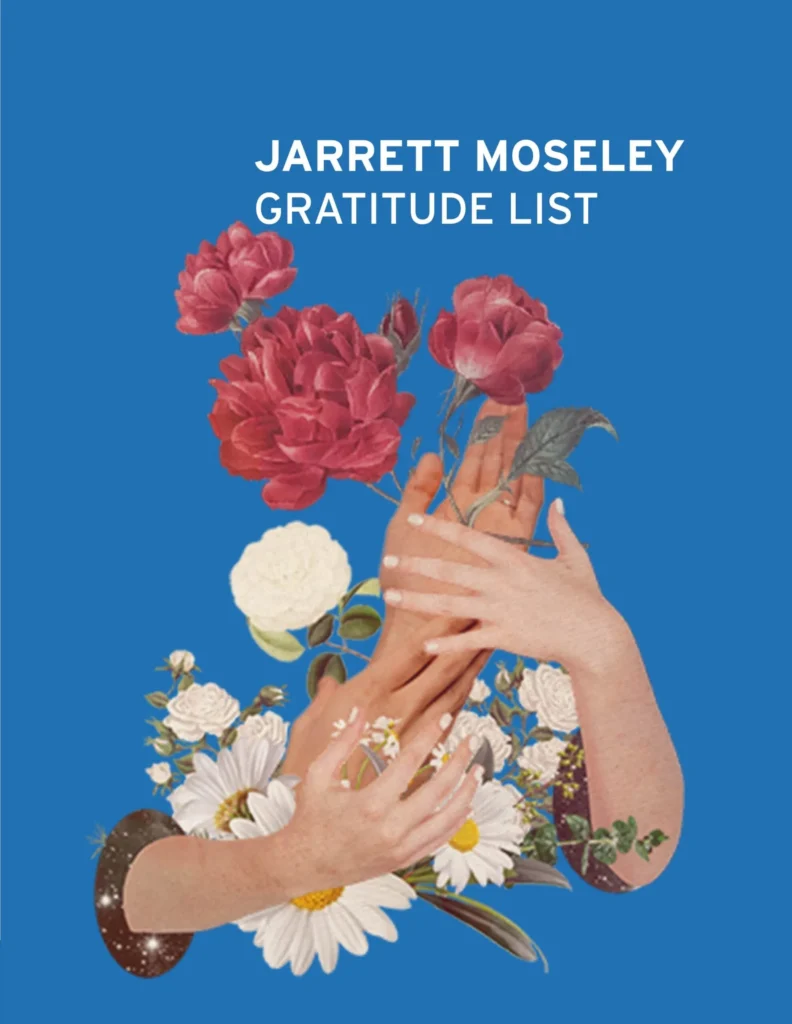
Gratitude List is a series of interconnected prose poems that follows a group of friends in recovery from addiction to drugs and alcohol. In poems that dive fully into the grief of losing loved ones to addiction, the intimacy of communal healing, and the challenges faced within that healing, Gratitude List portrays the everyday lives of recovering addicts and the tenderness formed between them in recovery.
Finishing Line Press
Moon Landing Day, Alissa Sammarco
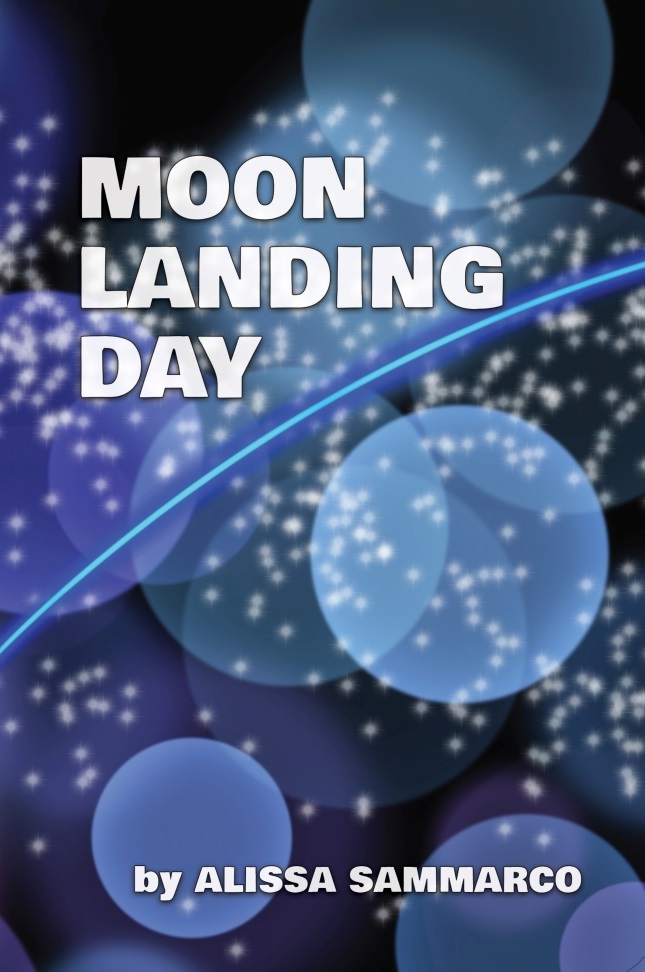
With cinematic imagery, Alissa Sammarco reveals the difficult truths of a young woman’s life, and of the harm that is passed from one generation to the next “with the words they swallow/the words they spit out.” But even as the doomed and self-destructive lovers in these poems inevitably “walk old paths in old shoes” as did their parents before them, the poet is making new paths with the unflinching honesty of her remembering. –Pauletta Hansel, author of Heartbreak Tree; Cincinnati Poet Laureate Emeritus
GOAT FARM ROAD Poems from the Adirondacks, Catherine Norr
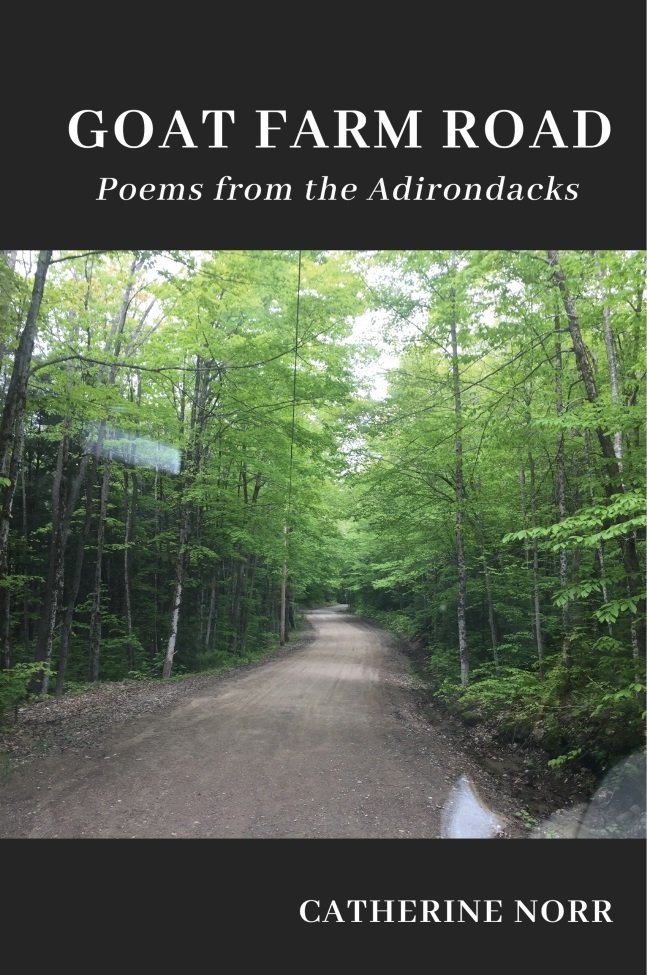
Goat Farm Road, Poems from the Adirondacks presents a glimpse into life being lived in a little-populated area of Upstate New York, off-grid, in woodland and wildlife surroundings. The collection is an invitation to share the healing silence and visual delights of seasons and nature unfolding. Some lyrical selections touch on aging, brush with cancer and mortality. Others are lighter, more playful. A few haiku and tanka deliver quick snapshots of the author’s observations, while longer poems provide inner meditations and reflections.
strong female protagonist, Heather M. Hoover
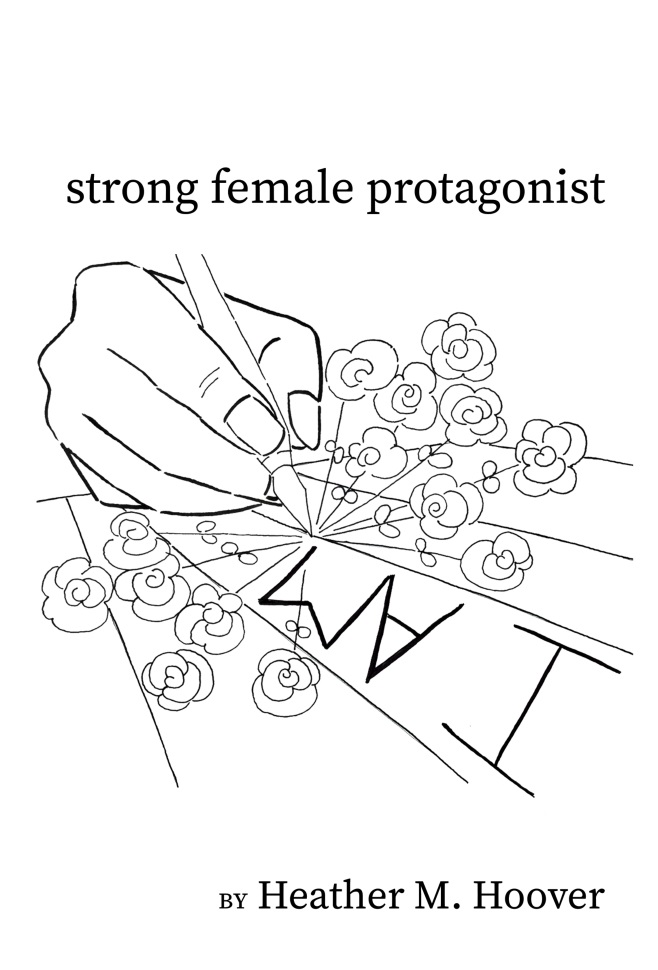
strong female protagonist considers relationships between and with women, meditating on the beauty and weight of female legacy. This collection looks closely at the lives of my mother, grandmother, and daughter, as well as my literary heroes—all protagonists of their own stories. These poems consider the lives we have lived, the choices we made, and the heady potential to make new ones. These poems explore what it means “to be” a strong female protagonist through the most quotidian of details—a bouquet of daffodils, an old photograph, even an insect in the windowsill. Together, these poems tell their own story of love, loss, wonder, and possibility.
10 Hours to Tulsa, Shelley Nation
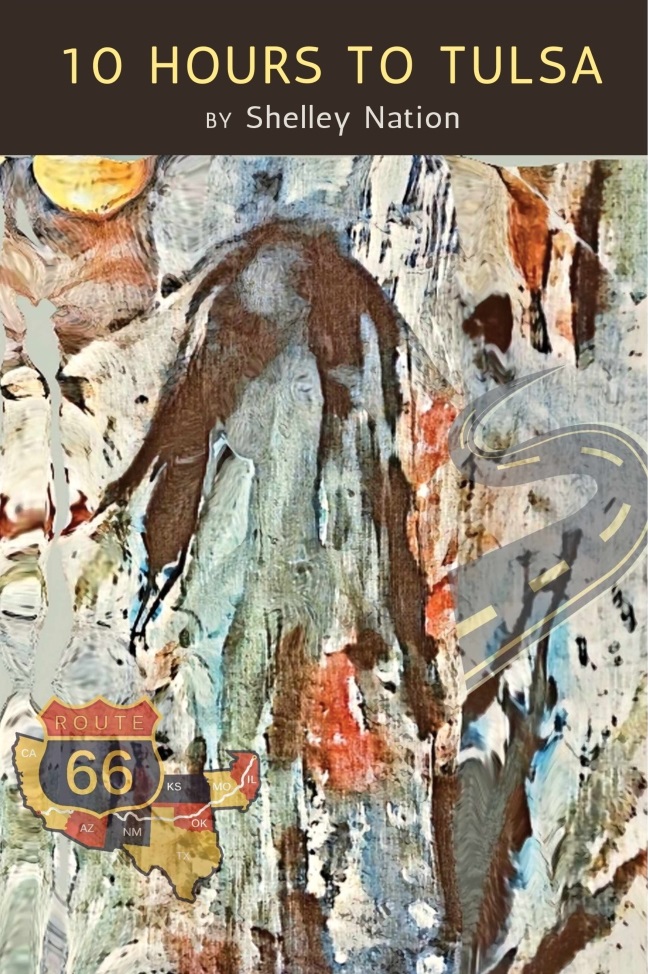
Shelley Nation shares her life experiences growing up in Tulsa, Oklahoma through her engaging prose.From specific events to the words and thoughts of her family and friends, Shelley takes us on a journey of one child’s memories.
Dropping Sunrises in a Jar, Melinda Thomsen
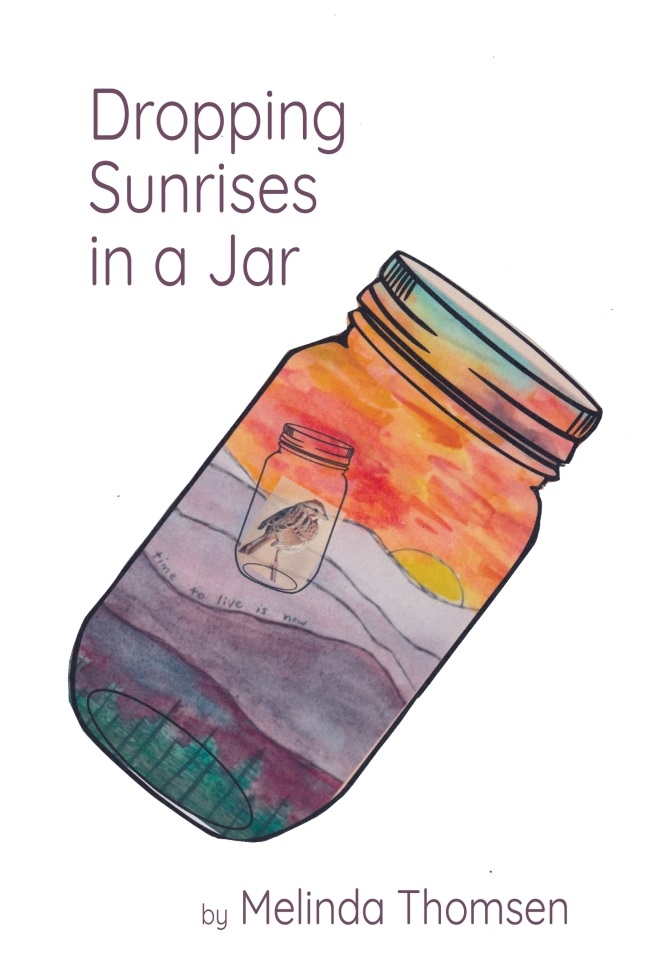
Each poem in Dropping Sunrises in a Jar began as a way to understand why birds appear so happy at sunrise. Written from notes spanning over twenty years, Dropping Sunrises in a Jar glimpses nature’s inner workings of joy. In free verse and form poems, sunrises from across the globe are depicted in a variety of awakening colors and sounds. Poems recount the morning opera from locations like a sleeping car on a train going to Beijing to construction crane noise in Prague, the cooing of doves in North Carolina, and canyon towhees in Arizona. By organizing the poems into three sections: I’ll tell you how the Sun rose, A Ribbon at a time, and The Steeples swam in Amethyst, the readers ultimately find themselves gently released back into their world with signs of hope.
The American Gun, Jessica Femiani
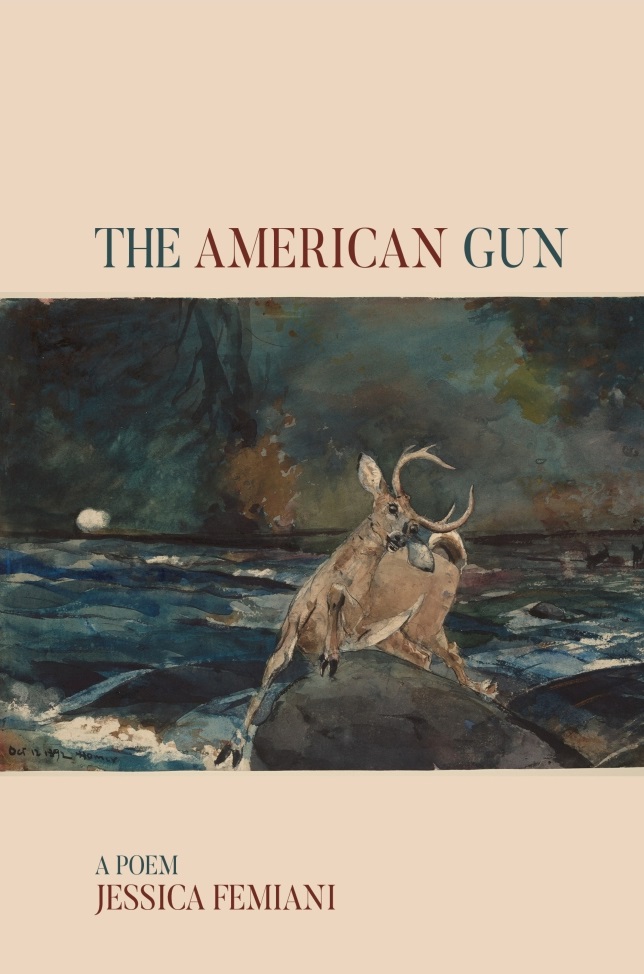
The American Gun is a poem in ten parts delving into the modern phenomenon of mass shootings in the United States. It’s a narrative account of a young teacher in NYC wrestling with the reality of American gun culture. From the classroom to the subway platform, The American Gun is a meditation on tragedy and what it means to live in a country where domestic terrorism is a constant threat. Femiani’s poetry illuminates what the media cannot: the residuals of monumental loss, months and years after the fact, in the face of an unyielding “democracy” unable to protect the lives of its citizenry and its children.
Tender One, G. Gazelka
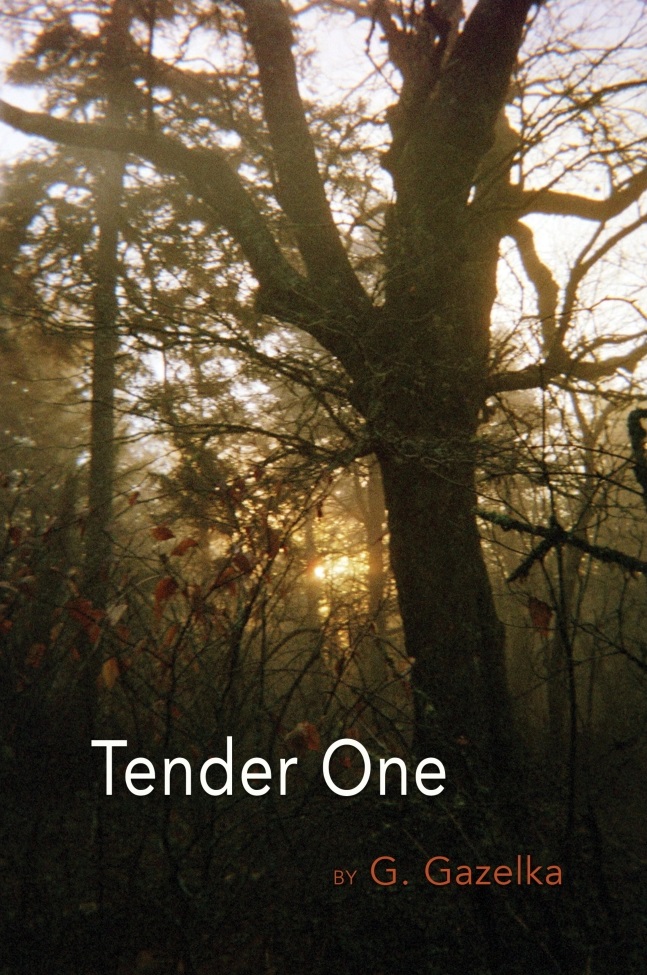
Tender One opens with a longing for a mythological childhood and an innocence like sibling relations. This longing is paradoxically both awakened and barred by trauma symbolized by being buried. Desirous of the voice that compelled them from the grave, these often personal poems take a spiritual journey through crisis to wholeness and a place of intimacy. Offered in this chapbook are their meditations and truths learned along the way.
Better Than Throwing Stones, Jan Ball
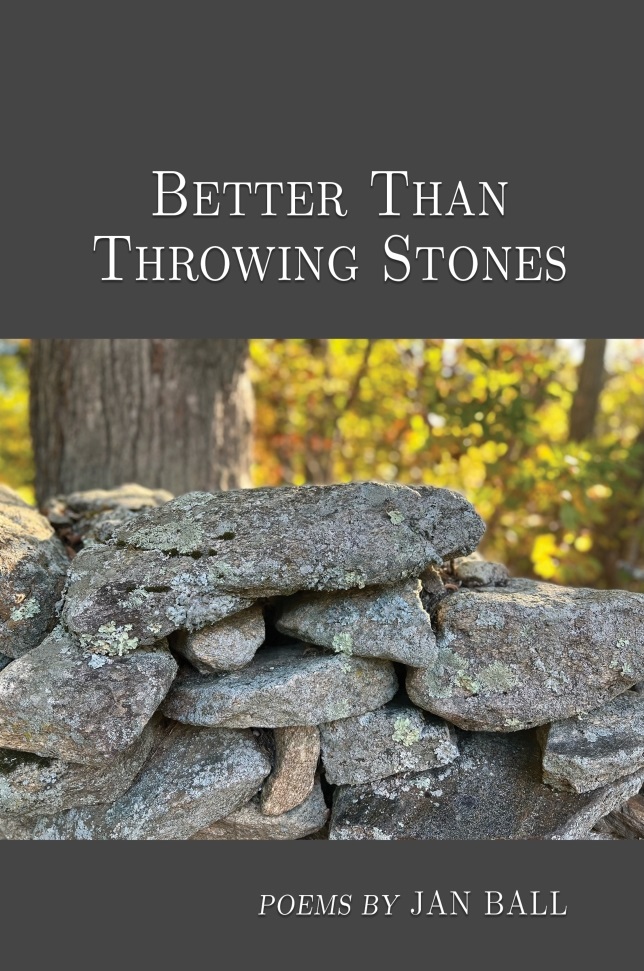
At eighty-one years old, Jan Ball has pretty much learned what is better in life than throwing stones at children. Her poems are filled with details of her various life experiences: her seven years in a convent, parenting, life in Australia, teaching and extensive travel but also leave some unanswered questions like: Was That Stephen King? or Research Poem: Does Anyone Really Want to Know About Slime?
Life On The Edge, Nancy Wheaton
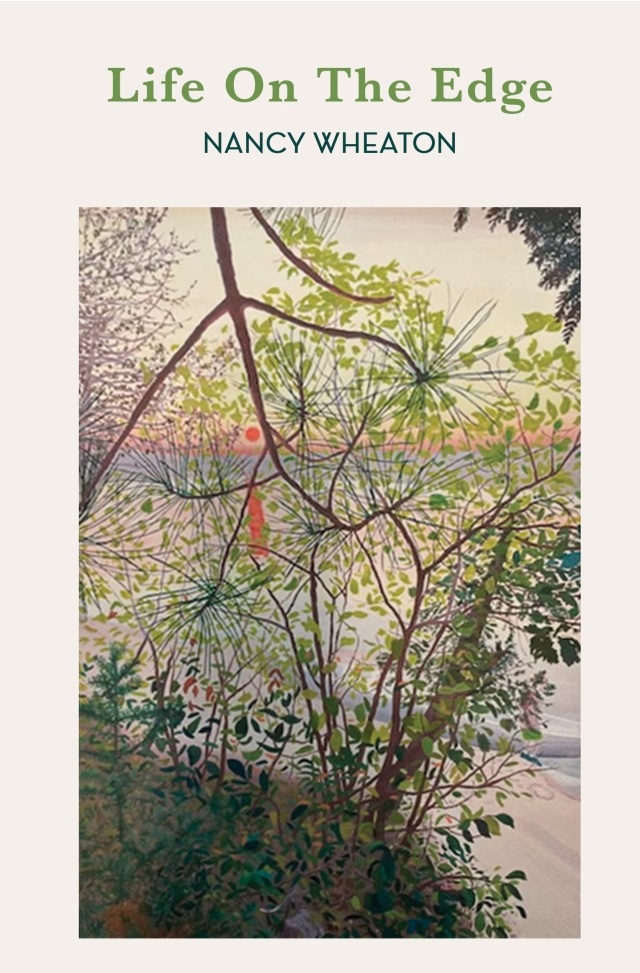
Life on the Edge is a collection of poems that reflect various perspectives of human life happening within the natural world. The reader visits water worlds in Below the Surface, and the woods in Squirrel Neighborhoods and Haunted House, for example. We are unknowingly held as we navigate drunken episodes, aging, and differences, culturally and socially. We matter. We are important. We are deeply loved. A sense of belonging is conveyed in Life on the Edge.
Yelping the Tegmine, Cal Freeman
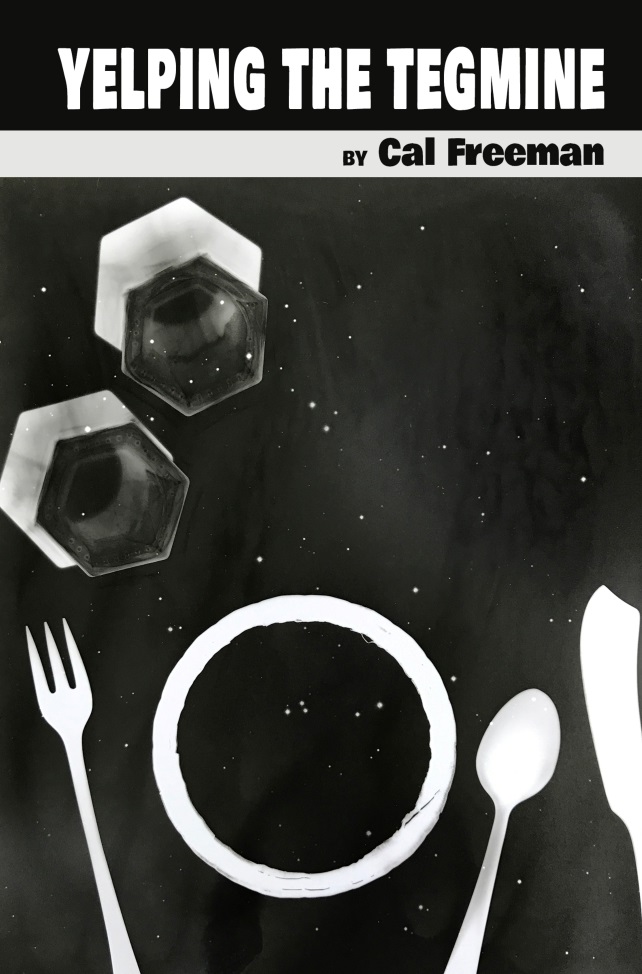
The paragraphing of verse in English turns on the cusp of Lyrical Ballads, not from the familiar to the strange, but the opposite, from the weirdness of heightened speech to the conversational pitch of emotion which, upon reading it, we seem to have always known. Cal Freeman’s poetry scaffolds a similar structure through which his lyric moments flash. He cannot disguise that he is a Detroit poet, and unlike Levine, who abandoned (except in poetry) the once smoking landscape of Southeast Michigan, this increasingly accomplished poet has engaged a life there that is complex and erudite. His is a first-rate talent. Loss is his common topic, and there is a deep philosophical openness to the work of grief. Showing uncanny patience for the thought of longish poems, Freeman holds onto what unfolds for him and then what is revealed for us; as with all good poets, we do not know what he is after at first, but in such wonderfully titled poems as “Dichotomy Paradox as a Non-Fungible Token,” “Yelping the Tegmine” (the title poem), and “Adrian Dantley (AD) Circa 1890s,” we ourselves might say, as we arrive at our understanding, that it’s “the first time [we] remember feeling this way.” –Kevin Cantwell, author of One Thousand Sheets of Rice Paper
Thick Black Lines, Christie Cruise
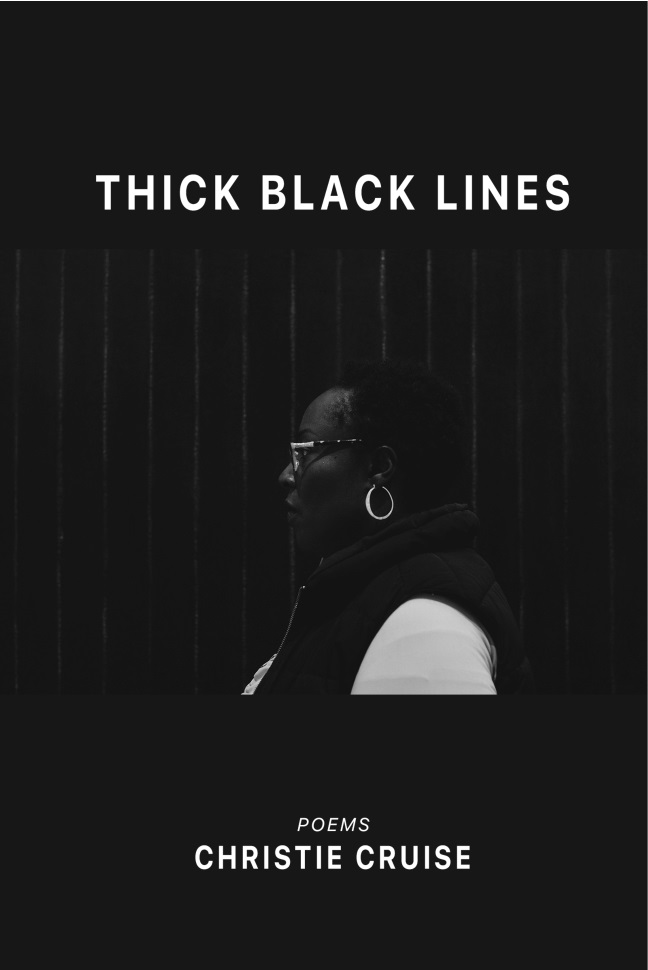
Thick Black Lines includes poems that extend to the experiences of Black people, with a particular emphasis on the nuanced perspectives of Black women. Themes of race relations in the pandemic years, grief and loss, and systemic oppression are interwoven throughout the verses, creating a tapestry of shared experiences. The effects of these experiences on physical, mental, and emotional well-being are entwined.
This body was never made, Tara Propper
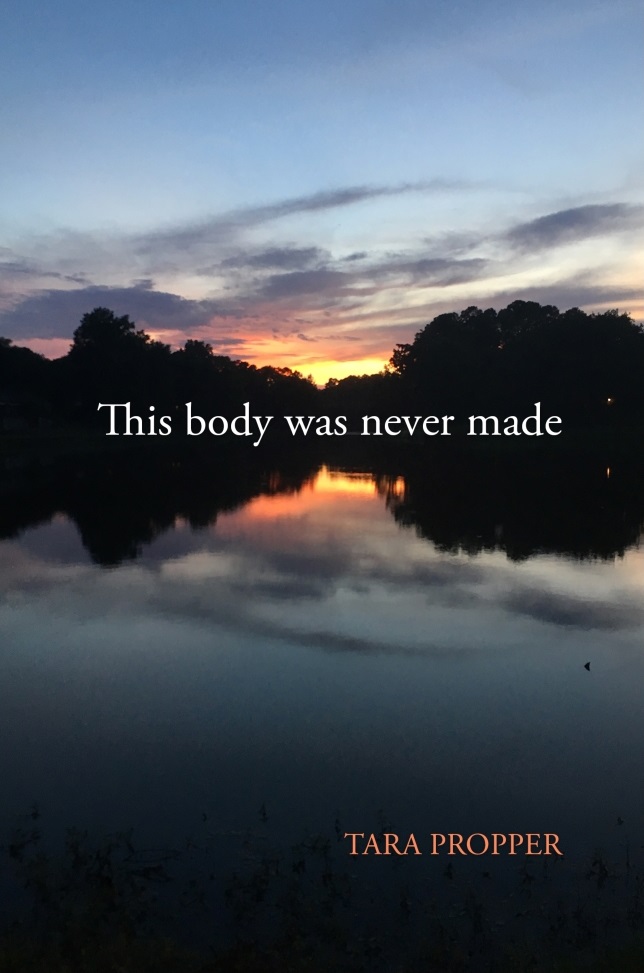
This body was never made is a meditation on grief and its attendant fears surrounding the body – the body’s frailty, lineage, and legacy. Its poems paint portraits of maternal loss, of a fractured family, of nature’s eloquence, and of transcendental beauty. While This body was never made does not solve the problem of death, it embraces the “night sounds” that accompany an awareness of the body’s temporality, resolving in the chapbook’s final lines, “There is nothing in this room but shapes of us—amorphous/organs ascending and descending underneath the bed sheets.” In this collection, still-life speaks, seascapes listen, and math provides counsel, reminding us that life exists before and beyond the body.
Reaching for the Nightingale, Beth Fox
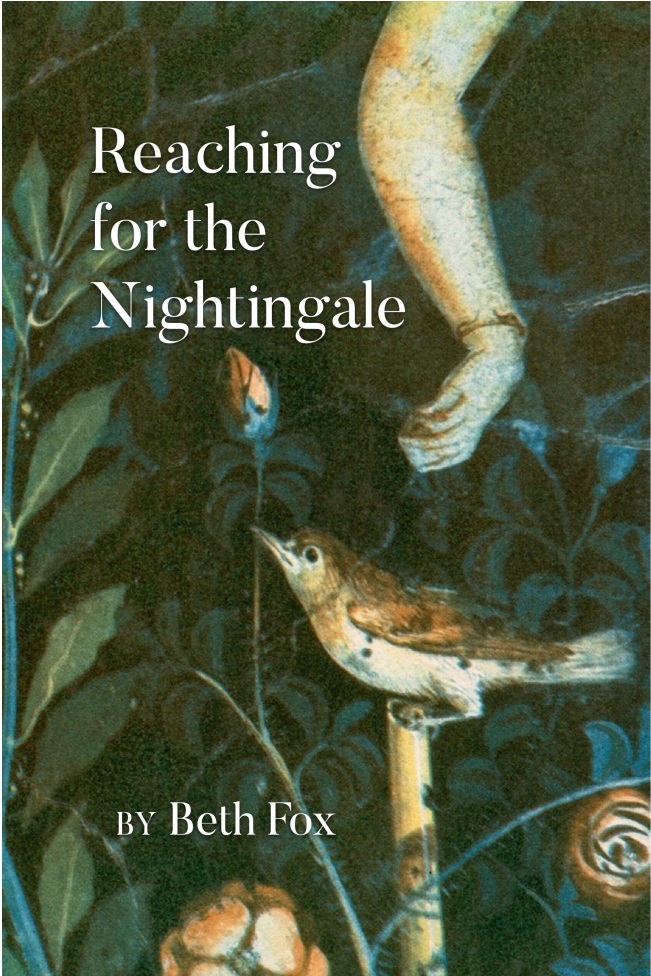
Beth Fox’s provocative poems cover a lot of ground: geographically, from Tennessee to Mexico and back to New England, and, in terms of content and usage, enlisting participants that range from snapping turtles to George Washington Carver. She captures our attention with striking details and devices (in “After the Fourth Reading…” a crossed-out line is a significant part of the poem) and asks the question “Can a biscuit cure a nightmare?” With great imagination and insight, the poet gives us striking ways to look at our human condition, and, like her character Buster, catches phrases only to let them go. –Bob Demaree is a widely published author who has several collections of poems, including After Labor Day (2017).
Watching from the Bleachers, Eileen Ivey Sirota
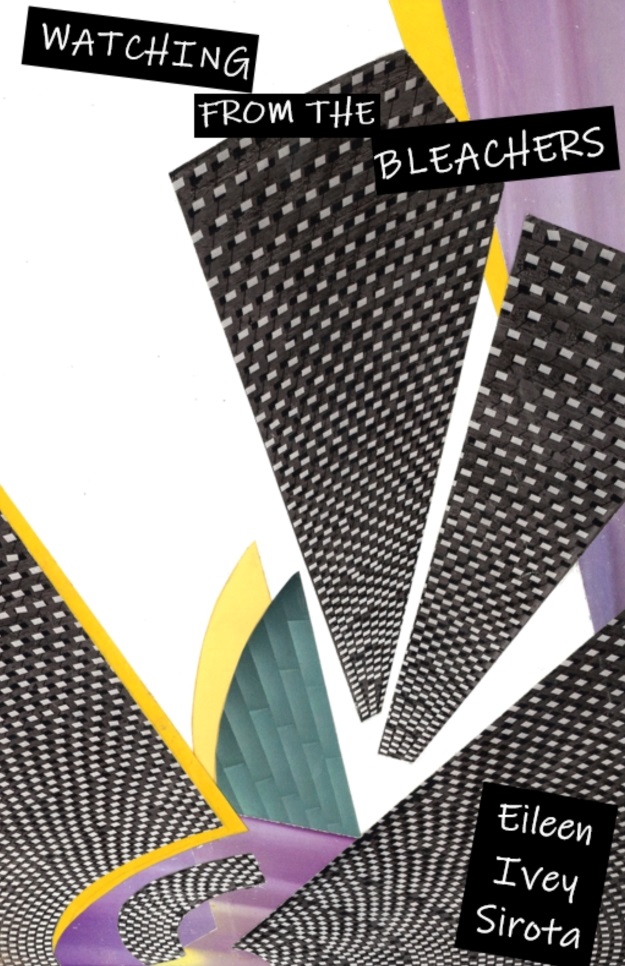
Watching from the Bleachers draws us into engagement with the world in all its brokenness and beauty. Eileen Ivey Sirota‘s poems traverse the spectrum from the personal to the political — from the loving ambivalence between a cognitively impaired mother and her adult daughter to outraged examinations of racism, othering and indifference. In the poem “In Which I Interrogate My Frequent Response” the author’s own privilege becomes the object of her sharp gaze. Covid and its time-distorting effects are a frequent backdrop to this work. The poems “Master Class” and “Advice to a Freshman” invite whimsical comparisons between the mating behavior of cicadas and college students. The inevitable losses of aging are captured elegiacally but without sentimentality. The broad sweep of these poems is held together by a unique sensibility that combines wit, wonder, outrage and, ultimately, hope.
Drive by Sigrun, Susan Lane
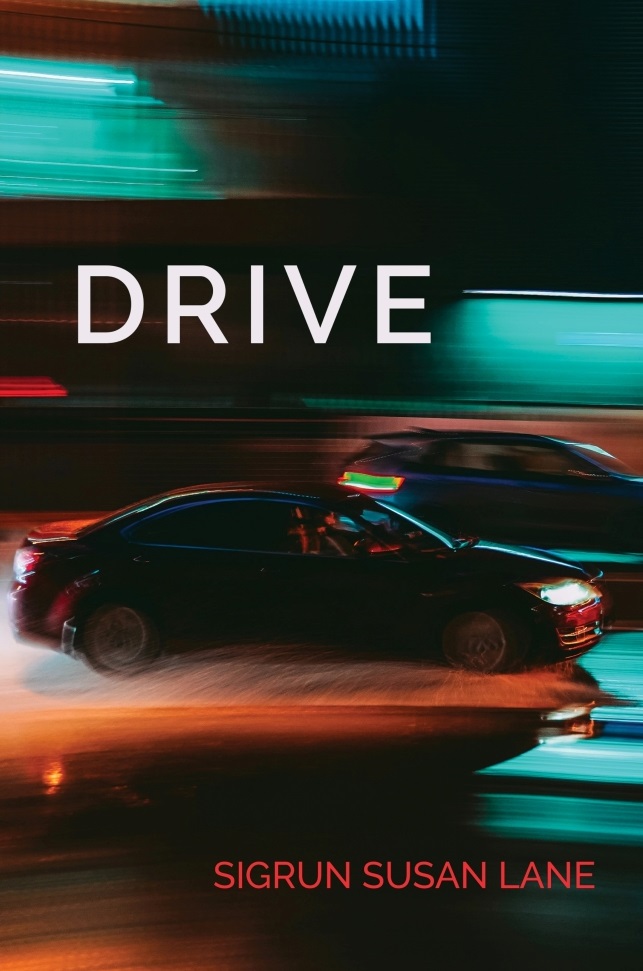
In her autobiographical chapbook Drive, Sigrun Susan Lane writes vividly and without sentimentality of her admiration for an enigmatic father always on the move, as her own mercurial spirit is revealed. With striking imagery that captures youth, yearning, and restlessness, anyone who’s clung to a parent’s companionship long after they have passed will find this collection relatable and unflinchingly tender. –Janée J. Baugher author of, most recently, The Ekphrastic Writer: Creating Art-Influenced Poetry, Fiction and Nonfiction
Page: 1 | 2
Don’t see a poetry chapbook published between 6/1 and 6/30 here? Contact us to let us know!

Contents
Check out new poetry books published the week of 7/2 from Black Lawrence Press, LSU Press, Persea, Omnidawn, Bloodaxe Books and Central Avenue Publishing.
Check out new poetry chapbooks for June 2024 from Driftwood Press, Sheila-Na-Gig Inc., Diode Editions, Querencia Press, The Poetry Box, Finishing Line Press, Bottlecap Press and an Editor’s Pick from Tupelo Press.
Check out new poetry books published the week of 7/9 from Finishing Line Press, New Directions, Phoneme Media, University of Calgary Press and Curbstone Books.
July ‘24: A Fledgling Journal No More
We’ve completed our first volume, there’s a new featured chapbook poem, and we’re starting to look for a Poetry Editor to expand what we publish. Check out the editor’s note for July 2024.
Chapbook Poem: Whenua by Nicola Andrews
Read the featured Chapbook Poem of the Month for July 2024, “Whenua” from Māori Maid Difficult by Nicola Andrews, along with a few words from the poet.
Check out new poetry books published the week of 7/16 from Finishing Line Press, Soft Skull, Penguin Books, Regal House Publishing and University Of Minnesota Press.
Check out new poetry books published the week of 7/23 from Host Publications, W. W. Norton & Company, Carcanet Press Ltd., LSU Press, Finishing Line Press, The Song Cave and Wake Forest University Press.
Check out new poetry books published the week of 7/30 from Delete Press, Quale Press, Duke University Press, Seagull Books, Sarabande Books, Michigan State University Press and Alternating Current Press.
Southern Literary Tradition: On ‘Snake Lore’ by Jane Morton
In this essay, C.M. Crockford reviews “Snake Lore” by poet Jane Morton, a chapbook published by Black Lawrence Press in February 2024.
Check out new poetry books published the week of 8/6 from NYRB Poets, Belle Point Press, Finishing Line Press, Black Lawrence Press, Wayne State University Press, Milkweed Editions, Penguin Books, Bloodaxe Books, Farrar, Straus and Giroux, Alice James Books, Mercer University Press and two Editor’s Picks from Coffee House Press and Wesleyan University Press.
Chapbook Poem: It’s okay to say the hurricane has an eye by Amanda Rabaduex
Read the featured Chapbook Poem of the Month for August 2024, “It’s okay to say the hurricane has an eye” from Resin in the Milky Way by Amanda Rabadeux, along with a few words from the poet.
Check out new poetry chapbooks for July 2024 from Seven Kitchens Press, Small Harbor Publishing, Belle Point Press, Orison Books, Variant Lit, Querencia Press, The Poetry Box, Bottlecap Press and Finishing Line Press.
Check out new poetry books coming the week of 8/13 from Querencia Press, Alice James Books, Finishing Line Press, University of New Mexico Press, Harbour Publishing, Knopf, Amistad, TriQuarterly and Red Hen Press.
Check out new poetry books coming the week of 8/20 from Querencia Press, Finishing Line Press, McClelland & Stewart, Zephyr Press, Tin House Books, W. W. Norton & Company, Red Hen Press, Graywolf Press, Wesleyan University Press and an Editor’s Pick from Copper Canyon Press.
Check out new poetry books for the week of 8/27 from Carcanet Press Ltd., Beltway Editions, Finishing Line Press,, LSU Press, Milkweed Editions, Tupelo Press, Guernica Editions, University of Nebraska Press and Texas Review Press.
Resistance and Resignation in Will Russo’s Glass Manifesto
“Glass Manifesto is a meditative collection of poems that call to resist the powers that move the world at times, or resign and offer oneself up to them at others.” Review by PCR contributor, Drishya.
Meet our contributor, Drishya, a writer and artist based in Kolkata, India, publishing under a single name to protest India’s caste system. Read about his writing life and other work.
